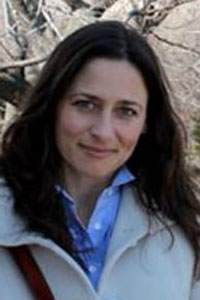Betsy Levy Paluck
 Princeton University, USA
Princeton University, USA
What does your research focus on?
I’m interested in prejudice and conflict reduction. I’m especially interested in developing and testing theory using field experiments with real world prejudice and conflict reduction interventions. I’ve worked with media interventions in post-conflict countries in Central and Horn of Africa, and with peer-influence interventions in high schools in the United States. All of this work has gotten me interested in the nature of social change more broadly. For example, some settings are so mired in conflict that it is considered “cultural.” I’m interested in psychological understandings of culture and cultural change, and how this connects to theories of behavioral and social norm change.
What drew you to this line of research? Why is it exciting to you?
I have always loved social psychology — its theories and its creative and rigorous methods — and I was attracted to the idea of applying these theories and methods to pressing social issues. I am always excited to work directly with practitioners who implement these interventions. They know all about the settings, and I get some of my best ideas for measurement and theory by listening to them.
Who were/are your mentors or psychological influences?
I have had many mentors, who have given to me generously and continue to do so now that I’m an assistant professor. They include professors (and those professors’ graduate students!) from my undergraduate time, graduate school mentors, and now the faculty with whom I work here at Princeton. In particular, Donald Green was my advisor in graduate school. He gave me an unrivaled education in political psychology and methodology, and he always encouraged me to be daring in my work. He is the type of mentor who gave me a great deal of independence, but also would attend to anything from my grammar to my overarching career path, when necessary.
To what do you attribute your success in science?
To my mentors and my collaborators. My collaborators include the schools and non-governmental organizations with whom I work on the ground.
What’s your future research agenda?
I will continue to investigate how, and for how long, social norms of intergroup tolerance and cooperation co-evolve with behavioral patterns. With a colleague Hana Shepherd, I have designed some studies combining experimental methods with social network techniques, as a way of understanding the diffusion of social norm perceptions. I am extremely interested in connecting this question to theories of culture and cultural change. I’ve advanced the hypothesis that social norms are a mechanism for cultural change, because understandings of culture are fundamentally similar to understandings of socially shared patterns of behavior, language, cognition — i.e., perceived social norms. I am also lucky to collaborate with graduate students who are interested in pulling apart some of these more macro ideas in the laboratory. I am working to use the Lewin and Cialdini cycle of research that constantly loops from the field to the laboratory and back.
Any advice for even younger psychological scientists? What would you tell someone just now entering graduate school or getting their PhD?
One piece of advice would be to read: read the classic articles and books in the field — Lewin, Moscovici, Hovland, Schacter (in no particular order and just as an example). Read about how other fields have approached your questions. Read the newspaper. Inspiration can be found in many places, not just this month’s edition of the most prestigious journal. Another piece of advice would be to be the best methodologist you can be. Get great statistical training. Even if you don’t end up using complicated statistical methods, you should understand them. Then you can be creative in your research design, knowing you stand on firm ground because you really understand inference and uncertainty.
What publication are you most proud of or feel has been most important to your career?
My first publication on a field experiment in Africa was really key for me — its publication told me, and I hope others, that you can do this kind of work as a social psychologist.
Paluck, E. L. (2009). Reducing intergroup prejudice and conflict using the media: A field experiment in Rwanda. Journal of Personality and Social Psychology, 96, 574-587.





APS regularly opens certain online articles for discussion on our website. Effective February 2021, you must be a logged-in APS member to post comments. By posting a comment, you agree to our Community Guidelines and the display of your profile information, including your name and affiliation. Any opinions, findings, conclusions, or recommendations present in article comments are those of the writers and do not necessarily reflect the views of APS or the article’s author. For more information, please see our Community Guidelines.
Please login with your APS account to comment.